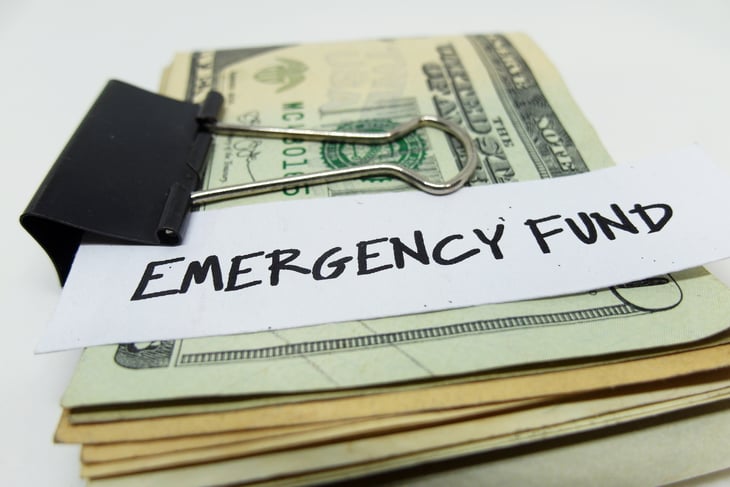
Nearly two-thirds — 64% — of American workers surveyed say they’re “somewhat confident” they’ll have enough money to live comfortably in retirement. That includes 18% who are “very confident” they’re on the right track for retirement, according to the 2023 Retirement Confidence Survey conducted by Employee Benefit Research Institute (EBRI) and Greenwald Research.
Meanwhile, 29% of workers and 42% of retirees surveyed are less confident that they’re on the right track as a result of inflation, according to the same survey. More than 2,500 adults, age 25 and older, were polled to reach the findings.
No matter which group you land in, staying on top of where you stand with retirement planning and progress is crucial to ensuring that you have enough money for a comfortable retirement.
Curious about whether your retirement planning is going as it should? Here are signs that your retirement is on track.
1. You’re saving enough for retirement

If you plan on working until you’re 65, you’ll need to produce 20 to 30 years of income throughout retirement, says Tom Martin, a wealth management certified professional in Hartford, Connecticut.
“If you require $75,000 a year to survive today, you’ll probably need $1.5 million to survive until age 85 or $2.25 million to live until age 95,” says Martin. He tells Money Talks News that if someone’s Social Security is expected to pay out $24,000 a year, that’s can account for $500,000 of the $1.5 million needed to cover costs until age 85.
If you have a gap in funding, Martin suggests increasing retirement account contributions, reducing spending and/or taking on a side hustle to earn more.
“If you’re behind your retirement goals in your 50s, you might want to give serious thought into not claiming Social Security until age 70,” says Martin. “By not claiming Social Security [until age 70], you can work in your 60s without the worry of reduced Social Security benefits and increase your Social Security payments.”
2. You’ve automated retirement savings

If you’ve automated your retirement savings and set them to increase each year, you’re probably on track with preparing for retirement, says Andrew Rosen, a certified financial planner and president of Diversified LLC, a financial planning firm with offices in Delaware, Massachusetts, Pennsylvania and Alabama.
“By automating your savings, you’re prioritizing saving for your retirement,” Rosen tells Money Talks News. “Adding in an auto increase ensures that you’ll adjust that savings amount each year for inflation. It’s still important to check on how you’re saving, but automating it takes the guesswork out of it and makes saving for retirement a habit.”
To stay on track for retirement, Rosen suggests increasing automated contributions to your retirement accounts by one to two percent each year or 25% of any annual raise received.
3. Most or all of your debt will be paid off

Will you no longer have a mortgage, credit card debt, car loan, or student loans when you retire? If so, that’s a positive sign that this important part of your retirement is on track.
On the other hand, retiring with debt means you’ll have monthly payments that eat away at your income. You may even have to work part-time or withdraw extra funds from your retirement account.
“Carrying debt into retirement requires income to pay for it,” says Martin. “That additional income may erode your Social Security benefits, whether through taxes or a reduction of benefits.”
4. You plan for anticipated retirement costs

How much retirement will cost you will vary greatly by your retirement lifestyle.
“Determine how much it will cost annually for food, shelter, transportation and entertainment,” says Martin. “Also, be sure to price out any retirement activities such as travel, golfing or boating and factor in inflation.”
“Normally, inflation isn’t much of a concern. However, when it gets out of control like it is today, everything can cost significantly more and that hurts retirees,” Martin adds. “While we cannot project periods of excessive inflation, it’s important to account for a minimal inflation each year.”
To follow inflationary trends, Martin recommends visiting the U.S. Bureau of Labor Statistics or checking the economic data and forecast site Trading Economics.
5. You’re financially literate

If you have a budget and monitor how much you’re spending, saving and earning and are willing to look at how much debt you have and come up with a plan to get that number down, you’re already financially literate to some degree, according to Rosen.
“Financial literacy is a key component of retirement planning, and the earlier you start being comfortable with your finances, the more prepared you’ll be for retirement,” says Rosen.
“By frequently checking in and monitoring your progress with your budget, savings, retirement account, debt and financial plan, you’ll notice if anything is off track,” he adds. Rosen suggests reevaluating both short-term and long-term financial goals after major life changes like moving, having a child, or getting a divorce.
Rosen says these frequent check-ins are important to keeping your retirement on track. They give you an opportunity to catch and correct current problems and ensure your finances aren’t headed in the wrong direction.
Want to beef up your financial literacy skills? Visit MyMoney.gov and the FDIC’s Money Smart to learn more about saving, earning, investing, budgeting, spending, borrowing and more.
And, of course, signing up for the Money Talks News newsletter will bring the latest retirement news and advice to your email inbox.
6. You have a sufficient emergency fund

Having a fully funded emergency account is another sign that you are on track for retirement. This cash is essential to ensuring you are able to weather any financial storm, such as a job loss or medical crisis, without going into debt or dipping in your retirement accounts.
“You’ll need to have not only an emergency fund, but also a liquid fund where you’ll access your money,” says Rosen. “If you get into the habit of having access to an amount of liquid money that is available but not intended for daily use, you’ll be better prepared for how to deal with your financial setup in retirement.”
If you don’t have an emergency fund yet, check out: “9 Tips for Starting an Emergency Fund Today.”
7. You review retirement account statements

Never looking at your retirement account statements is a “recipe for disaster,” says Chris McMahon, president and CEO of Aquinas Wealth Advisors, a financial planning firm located in Pittsburgh, Pennsylvania. Yet some people go years, or even decades, without checking their retirement account statements, he tells Money Talks News.
“Often these statements will provide additional advice such as performance relative to the market or risk level compared to most folks your age,” he explains. “In short, these quarterly reminders can have a tremendous positive impact on where you may land in retirement. In the hunt for a safe and comfortable retirement your plan statement is gold.”
“If your account has way more stocks than the average, you may be taking more risk than you realize,” adds McMahon. “Be sure to check the performance breakdown of the individual holdings in your account listed on your statement. If one of your holdings is performing much worse than the rest, this could be a red flag telling you to consider replacing that holding.”
8. You plan for future taxes

To stay on track for your retirement, make sure you anticipate future tax increases.
“Federal income taxes are scheduled to increase at the end of 2026,” Martin says. “If you’re in the 24% tax bracket today, you’ll be in the 28% tax bracket in 2026.”
Roth conversions can be one way to avoid future tax hikes. By moving money from a traditional IRA to a Roth IRA, you’ll pay taxes on the money at today’s rates. Then, the money in a Roth account grows tax-free and can be withdrawn tax-free in retirement.
“The more you have to pay in taxes, the more aggressive retirees will have to be with withdrawals from retirement accounts,” Martin notes. “That, in turn, will cause more of Social Security to get taxed, increasing the likelihood of running out of money.”
9. Retirement worries don’t disrupt your sleep

If you’re confident enough in your retirement plans to fall asleep when your head hits the pillow, that’s one sign that your retirement is likely on track, according to McMahon. Listening to your inner voice offers insight into steps you may still need to take with retirement planning.
If you’re asking yourself whether you’ll be okay, have enough money or have to rely upon your children after you retire, that’s your inner self pushing you to address the problem, says McMahon.
“Often, people who realize that they may fall short simply ignore the problem,” he adds. “They rationalize, deflect, and steer conversations away from any real conversation around retirement readiness.”
However, those who are on track tend to regularly review and refine their plans. They are glad to discuss the topic and are open to suggestions about methods to improve their chances of having a rewarding retirement.





Add a Comment
Our Policy: We welcome relevant and respectful comments in order to foster healthy and informative discussions. All other comments may be removed. Comments with links are automatically held for moderation.